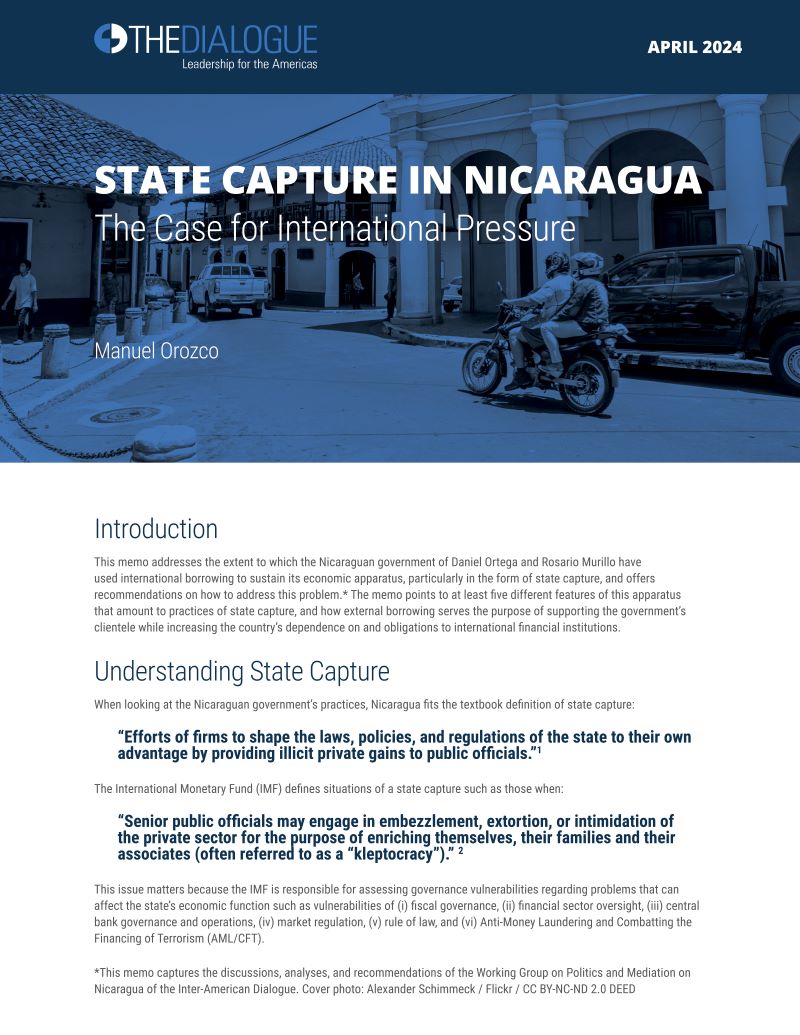Protecting Latin America’s Poor During Economic Crises
History tells us that economic crises cause large increases in poverty. The most recent economic crisis will cause Latin America’s GDP to contract around 2 percent in 2009.
This post is also available in: Español
On April 3, 2024, the Inter-American Dialogue released the memo "State Capture in Nicaragua - The Case for International Pressure." The report, produced by Manuel Orozco, director of the Migration, Remittances, and Development program, highlights how members of the Nicaraguan government have engaged in state capture, the role of international financial institutions in preventing state captures, and provides a look into external financing, its consequences, and the status of the Nicaraguan economy at-large.
The report concludes that international financial institutions must review their current lending practices in order to prevent the practice of state capture in Nicaragua and in the rest of Central America.
History tells us that economic crises cause large increases in poverty. The most recent economic crisis will cause Latin America’s GDP to contract around 2 percent in 2009.
The goal of education is to promote learning. Sitting in classrooms is a weak proxy for knowing how to read, do math, and apply science. Latin America needs to worry less about schooling and more about learning.
The earthquake in Haiti has exacerbated an existing distress during the international recession and increased uncertainty of what to do and how to help.
 Cover photo: Alexander Schimmeck / Flickr / CC BY-NC-ND 2.0 DEED
Cover photo: Alexander Schimmeck / Flickr / CC BY-NC-ND 2.0 DEED